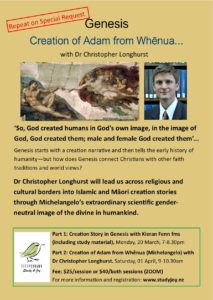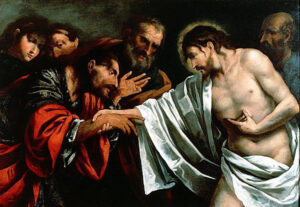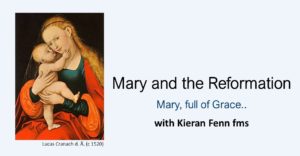Reflection on the Readings for Sunday 16 February
Jeremiah 17:5-8; 1 Corinthians 15:12,16-20; Luke 6:17,20-26
Contrasts explained in scenarios are very effective when it comes to choosing an option.
In Jeremiah, his warnings are immediately followed by a recommendation.
While God firmly asked Adam and Eve not to eat the fruit of a certain tree without giving any reason, Jeremiah warns with consequences.
A dry scrub in the wastelands or a tree by the waterside. The tree by the waterside has no worries. The water is there, the foliage is green, and the fruit is plenty – with little or no effort. Just like the birds don’t have to worry about clothes.
These contrasts would have been very clear to Jeremiah’s audience – as it is to us today.
Trust in men or trust in God? Curse or blessing?
Happy the man who has placed his trust in the Lord.
“Placing” one’s trust in someone is a wonderful expression. It is like an indication to a deliberate movement with a very specific (long-term) goal. A place to settle, to feel safe and at home.
This is the opposite to the situation of someone who “lingers” [in the way of sinners].
In 1 Corinthians, Paul affirms the importance of trust. We need to trust in Christ’s Resurrection. Only when we believe in the Resurrection can we have the hope that our sins are forgiven, and we will have life after death.

In the Gospel according to Luke the pattern of the curse and blessing is turned around. First the blessings when we trust in God and then the warning.
The Beatitudes, a Latin term that means “happy or blessed” are words of comfort for those who trust in God. Jesus addresses these words directly to his newly appointed apostles – the ones he will send to continue his work.
In Luke, Jesus pronounces the Beatitudes on the plains, where he is standing closely with the people. The people were waiting for Jesus who had been on the mountain to pray.
From there, Jesus had called his disciples to join him on the mountain, he chose the Twelve, and now they have come down from the mountain together with Jesus.
In the midst of the crowd of people, Jesus addresses his apostles with the dos and don’ts in their mission.
Jesus is very clear: the mission won’t be easy. The apostles will have to endure injustices and mistreatment, but there will be a reward. They need to trust in God and in their life after death.
The new apostles are warned not to become like the false prophets of their ancestors.
In fact, the most famous prophets of the Hebrew Bible have been prophets against their will and had to leave their family and possessions behind when God called them. Some of them tried to escape God’s call or wanted to give up when they were hated or persecuted, like Elijah.
It is certainly important to point out that these Beatitudes were addressed to the apostles – the new prophets. They are warned not to dream of becoming rich and famous but rather accept being poor and persecuted – in the name of God.
In the presence of the crowd, Jesus commissions the Twelve publicly. Among the Twelve was Judas, the Traitor…
BM



